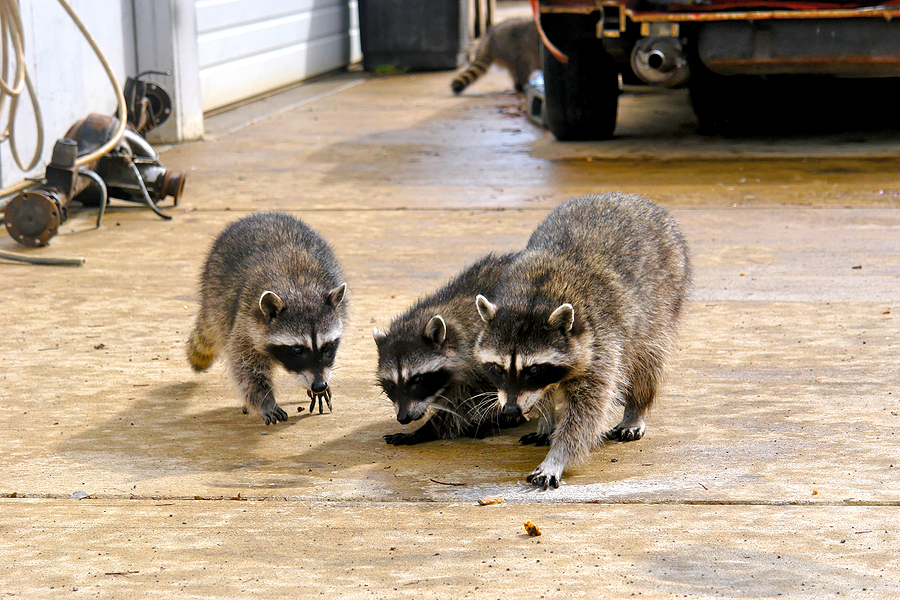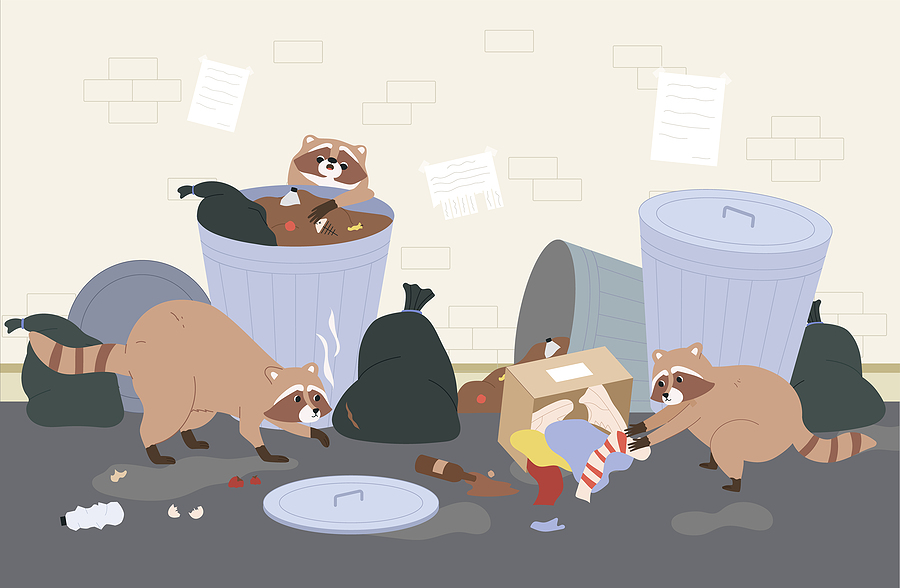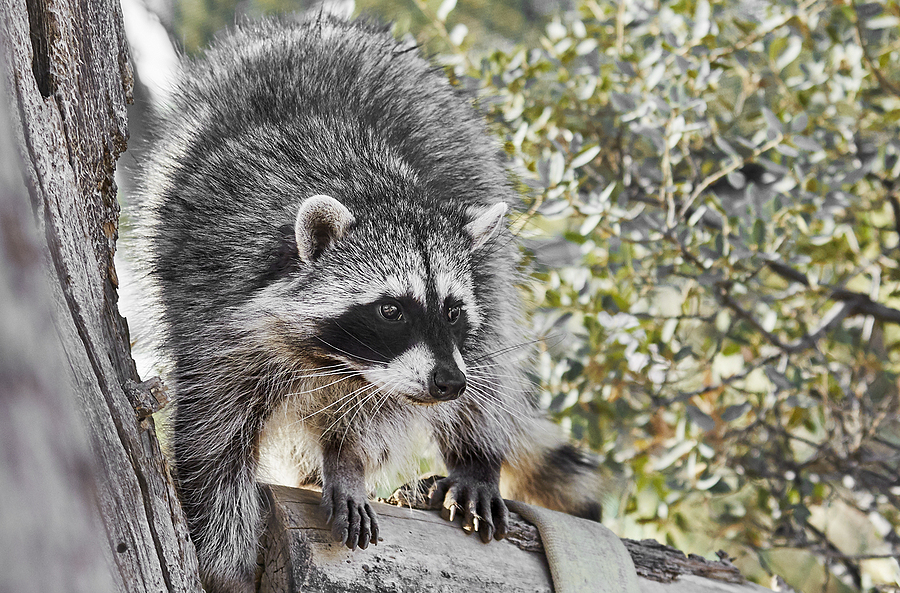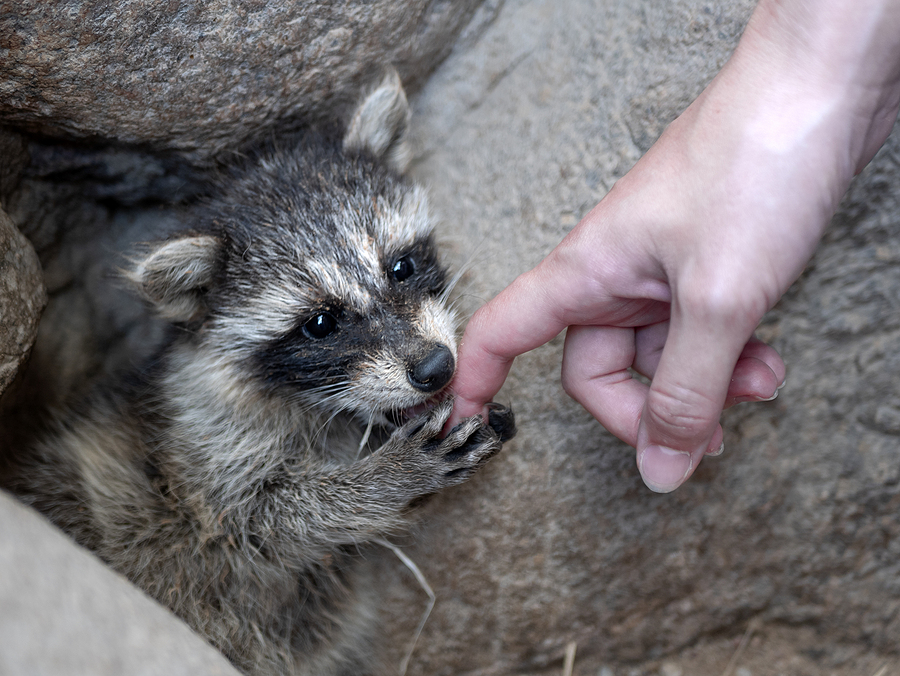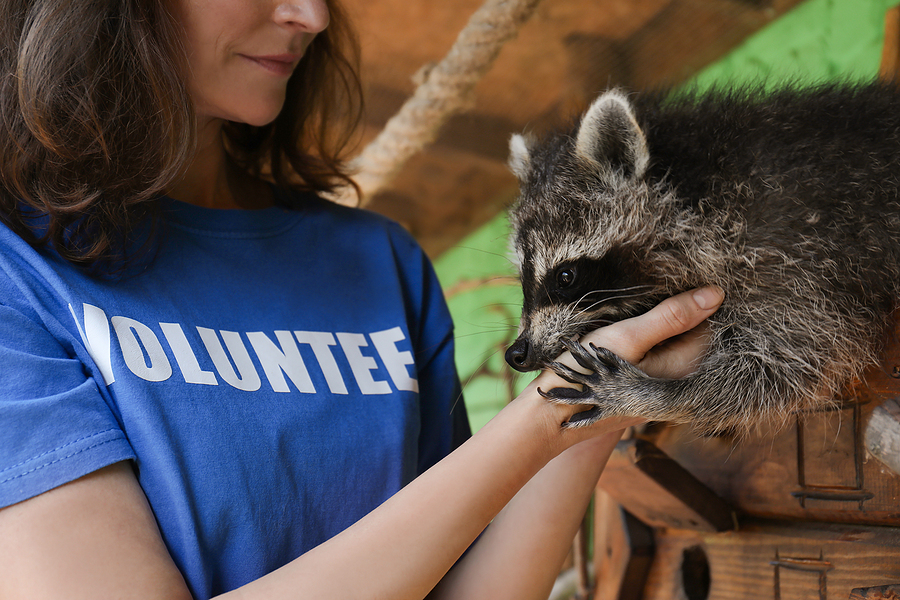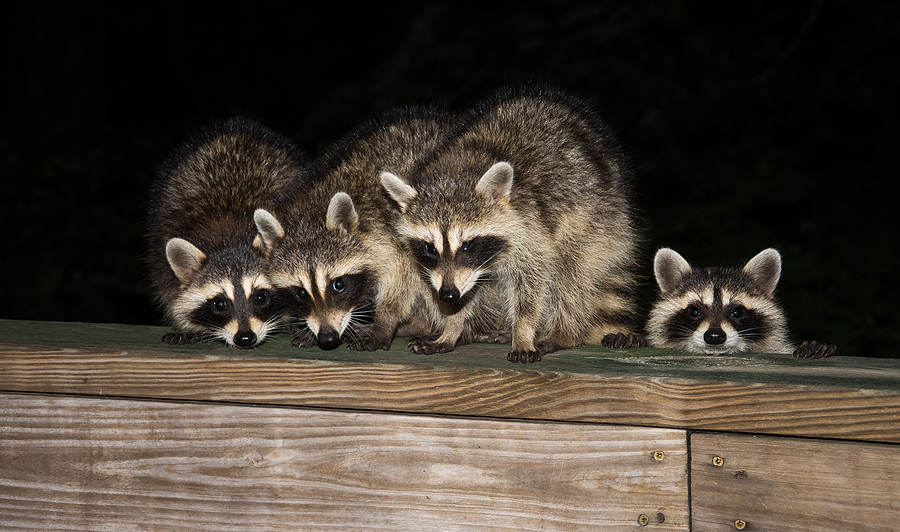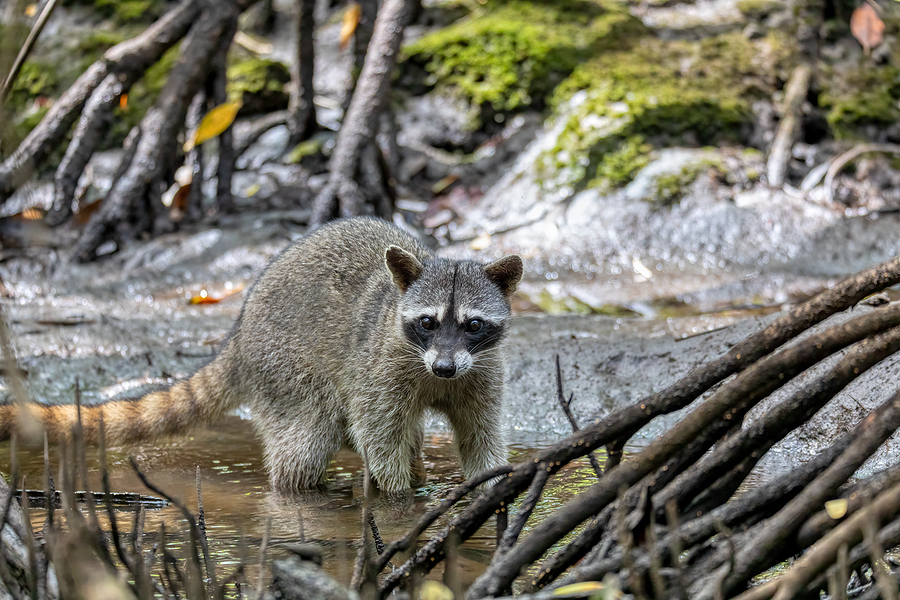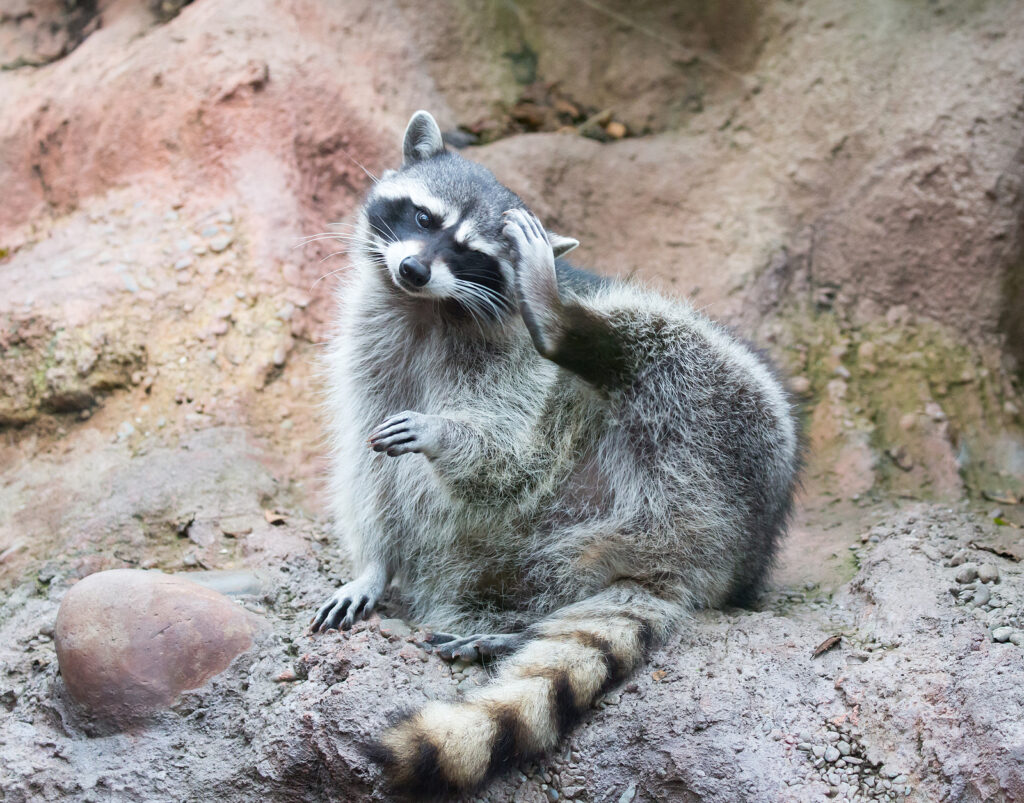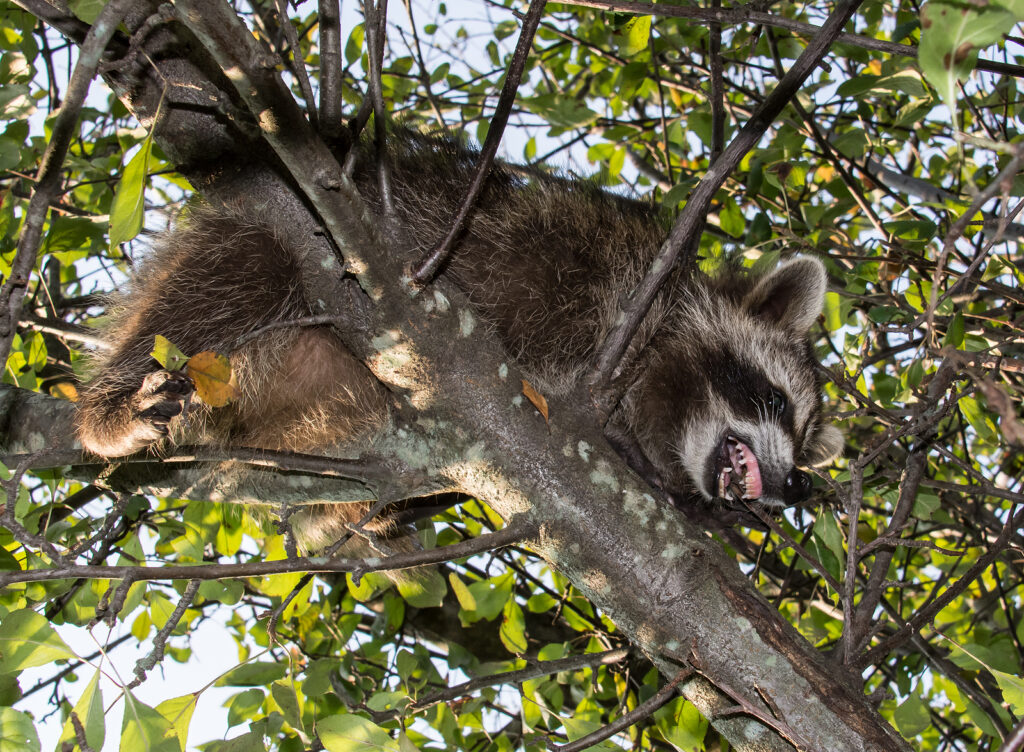Raccoons, often spotted as cute critters from afar, can become a true nuisance when they encroach on your living space. Known for their intelligence and dexterity, these furry invaders are making more frequent visits to urban and suburban areas, sometimes setting up camp right inside homes.
Discovering a raccoon invasion can be alarming, but with the right knowledge and action, you can effectively rid your property of these cunning creatures. In this comprehensive guide, we’ll explore the behavior of raccoons, the signs of infestation, potential health hazards, and most importantly, practical methods to deter and remove raccoons, all while keeping humane considerations in mind.
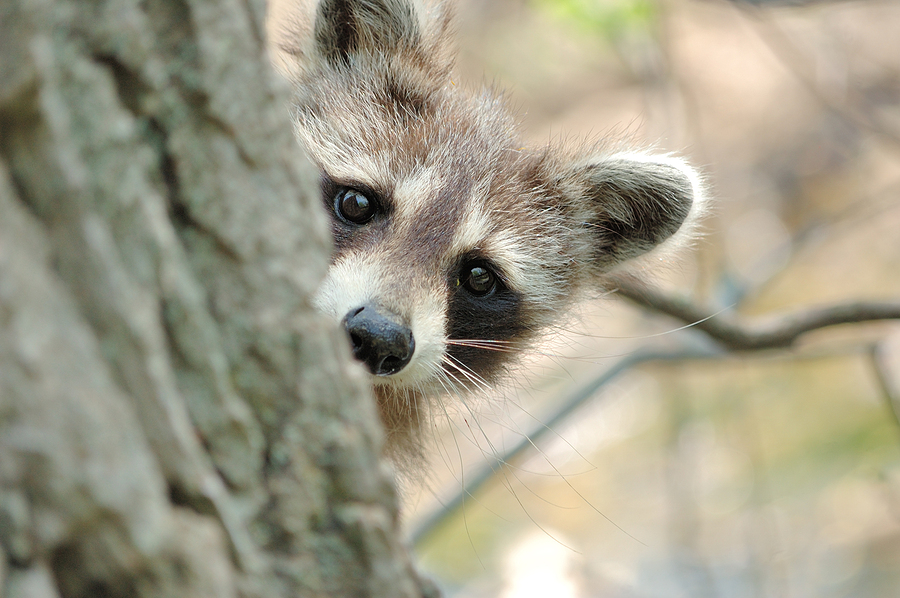
Understanding Your Uninvited Guests
The Nature of Raccoons
Raccoons are nocturnal omnivores with a penchant for scavenging. Their natural habitat ranges from forests to urban areas, making them highly adaptable and comfortable in human environments. They are opportunistic eaters, and not much goes unnoticed by their keen sense of smell and dexterous paws. Adept at locating food, raccoons will probe trash cans, pet feeders, and unsecured spaces for their next meal.
The Life of a Raccoon Family
Their complex social structure often involves family groups, with females raising their young – kits – in a den for the first year of life. Dens can take the form of abandoned burrows, hollow trees, and, unfortunately for homeowners, secluded parts of buildings. Close to a water source and abundant food, raccoons will stay put, leading to destructive habits and building up of their ‘washroom sites’ in the process.
Recognizing a Raccoon Infestation
Telltale Signs in the Home
Raccoons are not subtle house guests. Common signals of their presence include loud noises at night, distinct paw prints around the property, and the strong odor of urine and feces in areas they inhabit. You might find torn insulation, damaged ductwork, or ransacked pantries as evidence of their foraging.
Are They Harmless or a Hazard?
While they may be carriers of rabies and other diseases, the primary concern with raccoons is the destruction they cause to property and the potential for spreading parasites like fleas and roundworms. If you have household pets, there’s a risk of conflict, especially if your pets view these intruders as competition.
Prevention Measures Against Raccoon Entry
Fortifying Your Fortress
Raccoons are agile climbers and can find their way into surprisingly small openings. Start by inspecting the exterior of your home for any potential entry points like gaps under the eaves, unsecured vents, or holes in the siding. Reinforce these areas with sturdy materials, making sure they are inaccessible to raccoons.
Smart Trash Handling
Given a chance, raccoons will raid your trash, spreading its contents in all directions in search of a meal. Invest in raccoon-proof trash cans and secure the lids with bungee cords for extra protection. Minimize the scent by double bagging food scraps or using trash bags lined with ammonia, a strong raccoon repellent.
Humane Raccoon Removal Methods
Gentle Persuasion Techniques
If raccoons have already taken up residence inside your home, it’s important to initiate a removal process that’s both effective and humane. One method is to place ammonia-soaked rags near their entry points – the strong smell is known to deter raccoons. You can also use bright lighting or loud noises, as raccoons prefer dark, quiet spaces.
Professional Wildlife Services
For those uncomfortable with DIY removal methods, or if the infestation is particularly serious, enlisting the help of a professional wildlife removal service is a prudent choice. These experts are equipped with the necessary skills and tools to safely trap and relocate the raccoons without causing them harm.
Healing Your Home Post-Raccoon
Cleaning Up the Mess
After all raccoons are gone, it’s important to thoroughly clean and disinfect the areas they inhabited. Wear protective clothing, including a mask and gloves, and use a strong disinfectant to scrub every surface. Clean any droppings and urine as they can harbor dangerous pathogens.
Restoring Structural Damage
The next step is to repair any damage to your property caused by the raccoons. Replace chewed wires, mend broken vents or screens, and seal off any entryways they used. By doing this, you not only prevent re-infestation but also protect the integrity of your home.
Long-Term Raccoon Deterrence
Landscaping and Home Design
Raccoons are less likely to invade a well-maintained property with a lack of hiding places and easy food sources. Trim back overhanging branches, secure garden beds with wire mesh, and consider installing electric fencing to deter potential visitors. At the design stage or during renovations, prioritize raccoon-resistant features like wire-reinforced chimneys and decks.
Consistent Habits for a Coon-Free Home
Consistency is key – keep up with preventive measures like securing trash cans, not leaving pet food outside, and promptly repairing any structural issues. A vigilant and proactive approach makes your property less inviting to raccoons and helps maintain the peaceful coexistence of nature’s dwellers and your household.
Timely Intervention
Raccoons are resourceful and persistent; they will take advantage of any delay in your response to an infestation. Swift action at the first sign of trouble is crucial to minimizing damage and risk. Remember, an ounce of prevention is worth a pound of cure, and in the case of raccoons, proactive measures can save you a significant headache, and perhaps a rabies shot, down the line.
In Summary
If you’re feeling overwhelmed by the prospect of raccoon removal, always reach out to professionals. They not only can mitigate the immediate issue but can advise on future raccoon prevention strategies, leaving you reassured and your home raccoon-free. Furry invaders can pose more than a mere inconvenience; they can compromise the comfort, safety, and health of your family. By applying the insights, prevention strategies, and removal methods laid out above, you can safeguard your home against these creatures’ encroachment.
Remember, the key to a successful battle against raccoon invasions is a combination of knowledge, preparation, and, if necessary, professional assistance. Start now, and reclaim your space from the paw prints and masked faces of raccoons.
Are you ready to skip the hassle of animal-proofing against raccoons yourself? Contact Indianapolis Raccoon Removal at 317-535-4605 for prompt and professional raccoon control services in Indianapolis, Indiana and its surrounding counties. We serve residential and commercial customers with the most economic rates around.
Related Posts:
Raccoon-Proofing 101: How to Safeguard Your Property Against These Nuisance Critters
Critter Control: Expert Tips on Deterring Raccoons
The Unseen Dangers of Raccoons Nesting in Your Chimney

